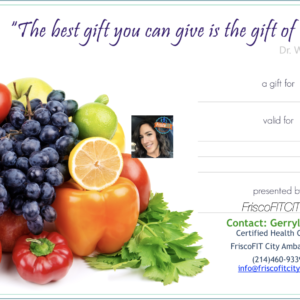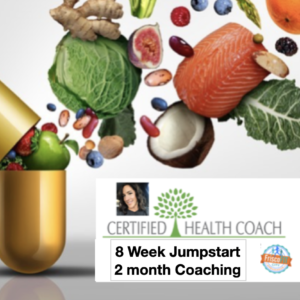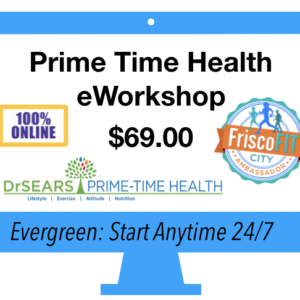4 Tips for Staying Resilient in Challenging Times
Dr. William Sears.
Shared with you from the Dr. Sears Wellness Institute – As a DSWI – Board Certified Health Coach – All information shared on my blog is always evidenced based and backed by science. MY promise to you. Your Partner in HEALTH – Coach Gerryl
Author: Dr. Bill Sears
A friend recently asked me, “Bill, you are a wise and happy person. What’s your top tool for getting through these challenging times?” First, I thanked her for calling me “wise,” which I define as a person who has survived, and thrived, through many challenges in life, and made many mistakes; yet, has had the good sense to learn from them.
My survival tool for these times:
Be resilient!
Resilience means different things in different circumstances. When “stuff” happens, the resilient person has the ability to shield themselves from the stuff overtaking their minds and quickly bounce back to turn a problem into an opportunity for personal growth. Often, easier said than done! Over my fifty years as a doctor, husband, and parent, I have noticed that the happiest and emotionally healthiest people – at all ages – are the most resilient. Also, I am a show-me-the-science type of doctor. One of the largest scientific studies, the GRANT Study (comparing how people feel with how healthy they are), revealed that resilient persons tend to have stronger immune systems. Try these take-home tools:
1. Not in My Mind!
When all this “stuff” began in early 2020 I realized that I must put a protective shield around my mind. It is especially vital to keep the germs of bad news from infecting my mind. So, I put up an imaginary sign in my mind:
No entry! Keep out!
When bad news infects my email or text, I quickly, by reflex, click on the trash-bin button.
Reframe to remain resilient. Pick your personal cue word that immediately prompts you to stay “up.” My favorite is “reframe!” As soon as a toxic thought or scene attacks my mind, I imagine a protective “reframe” and insert a pleasant memory or scene. Build a frame around your mind.
2. Bound Back and Bounce Up
Resilience means not only the ability to bounce back from life’s setbacks but also to bounce up using these tools to become a wiser, happier person because of how you handled the problems.
When you let bad stuff overtake your mind your decision-making abilities weaken just at a time when you need to “up” your decision-making abilities toward getting back on your personal path for life. As a result, your immune system weakens, making you more prone to getting physically ill; and your emotional system weakens, leading you to become more emotionally ill. This can cause a dopamine dip. Dopamine is your zest-for-life neurohormone. This is why resilient persons tend to be healthier and happier persons.
The advice I give to my deeply worried friends is: “The longer you dwell, the deeper your well.” This means the more you ruminate on toxic thoughts the more cerebral real estate they take up and the harder they are to erase. Life is not happy in Worryville!
happy-resilient-family
One of our dearest friends, Sandy, was gradually losing her eyesight to the point she became legally blind. She could see well a few feet away, but the longer the distance the more blurred the object. She had to give up driving (bummer!), but she took up crocheting again. The human brain is wired for resilience. When the visual center is compromised, sometimes another center of the brain, such as the precision movement for crocheting, becomes even better. She continues to be one of the happiest persons we know from the feelings of her helper’s high by crocheting blankets of blessings for those who need cheering up.
3. Radiate Resilience
Imagine the “vibes” you are sending to your friends and family when you convey resilience. Especially during these stressful times, people need to be around uplifting people. “I needed that” is a phrase I love to hear when giving someone uplifting advice. Vibes are real. Your eyes, words, and facial and body language light up the happy centers in the brains of those around you.
Your family is more likely to remember how you bounced back from the setbacks and crises rather than the actual setbacks that occurred. For example, over the past two decades, we have had diagnoses of cancer in four family members. “How to heal from cancer” became a familiar subject at our family get-togethers. After discussing the problem, we would quickly get the solution train back on track by brainstorming about “how can we help the family member heal?” Our family motto became: “Together, we will heal!”
It’s okay to be sad. When a sad situation happens, let your naturally sensitive self emote. And, let your family see your sensitivity. Resilience doesn’t mean, “Don’t let it bother you!” On the other hand, be bothered, but then bounce back when you see yourself going downhill.
The day our beloved dog, Delilah, died was naturally a down day for our family. Sadness prevailed! We said goodbye and each family member bounced back at their own rate. Try to achieve a balance between compassionate sensitivity and resilience.
happy woman smilling
One of my favorite resilience-lessons movies is Apollo 13. Remember, Tom Hanks frequently-quoted saying: “Houston, we have a problem.” His ultra-resilient Houston team echoed, “Tom, we have solutions!”
4. “Stay on Your Personal Path”
This is a resilience phrase I frequently use for advising young persons in my medical practice. We talk about the importance of knowing “what your personal path is,” and I teach young people how to stay on their personal path. The conversation with a young person who is struggling may start like this:
“Joe, what’s your personal path in life?”
“What do you mean?” he may ask.
“Do you have a wish list and a path to attain it? Resilience is the key to staying on your path. Many of life’s setbacks will derail you. Mastering resilience helps you bounce back into your personal path to health and happiness.”
My wish for all of you is to master resilience and radiate your mastery to your friends and family. Stay tuned for an upcoming article from Dr. Bill’s lessons-for-living library: how to find and stay on your personal path for health and happiness.
Written by: Dr. Bill Sears


